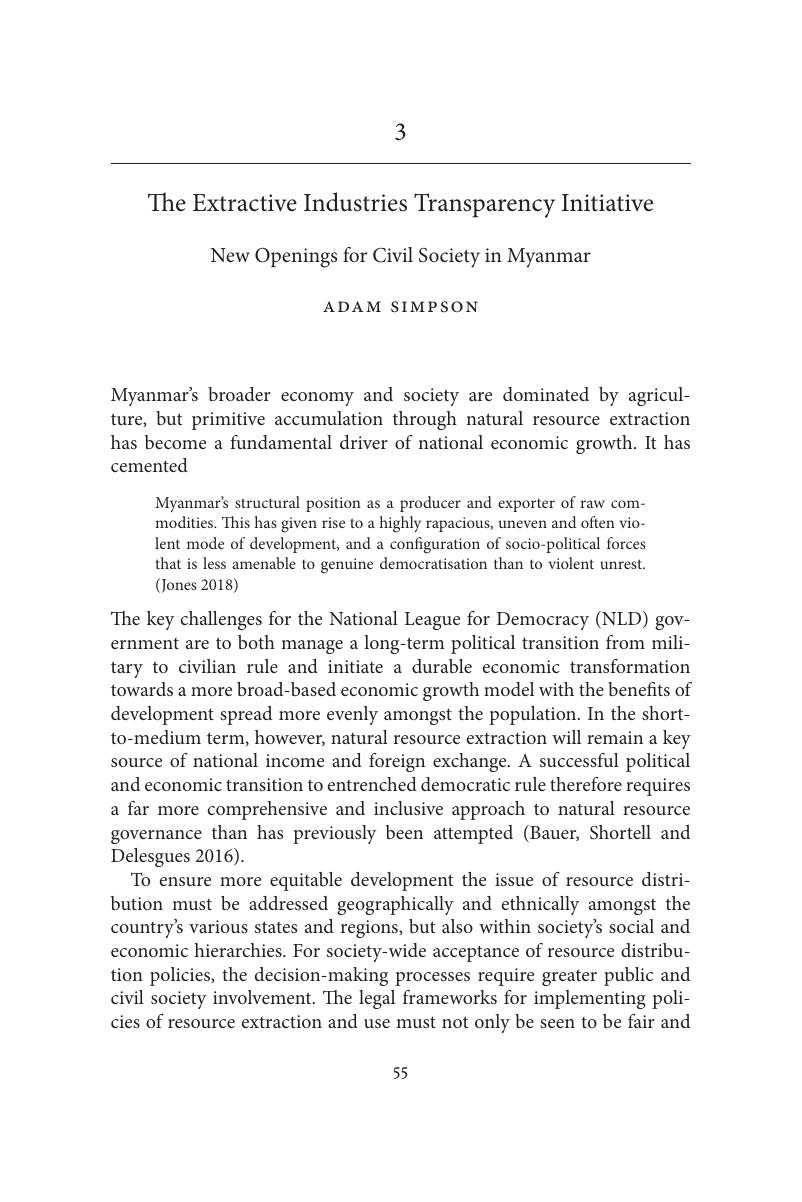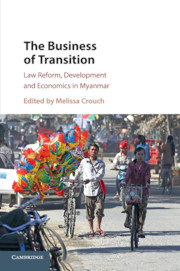Book contents
- The Business of Transition
- Advance Praise for The Business of Transition
- The Business of Transition
- Copyright page
- Contents
- Figure and Tables
- Contributors
- Foreword
- Acknowledgements
- Acronyms
- 1 Understanding the Business of Transition in Myanmar
- 2 Labour Standards and International Investment in Myanmar
- 3 The Extractive Industries Transparency Initiative
- 4 The Risky Business of Transformation
- 5 Microfinance in Myanmar
- 6 The Governance of Local Businesses in Myanmar
- 7 Special Economic Zones
- 8 Facing the Concentrated Burden of Development
- 9 Top-Down Transitions and the Politics of US Sanctions
- 10 The Politics of Aid in Myanmar
- Index
- References
3 - The Extractive Industries Transparency Initiative
New Openings for Civil Society in Myanmar
Published online by Cambridge University Press: 23 October 2017
- The Business of Transition
- Advance Praise for The Business of Transition
- The Business of Transition
- Copyright page
- Contents
- Figure and Tables
- Contributors
- Foreword
- Acknowledgements
- Acronyms
- 1 Understanding the Business of Transition in Myanmar
- 2 Labour Standards and International Investment in Myanmar
- 3 The Extractive Industries Transparency Initiative
- 4 The Risky Business of Transformation
- 5 Microfinance in Myanmar
- 6 The Governance of Local Businesses in Myanmar
- 7 Special Economic Zones
- 8 Facing the Concentrated Burden of Development
- 9 Top-Down Transitions and the Politics of US Sanctions
- 10 The Politics of Aid in Myanmar
- Index
- References
Summary

- Type
- Chapter
- Information
- The Business of TransitionLaw Reform, Development and Economics in Myanmar, pp. 32 - 54Publisher: Cambridge University PressPrint publication year: 2017
References
- 1
- Cited by

